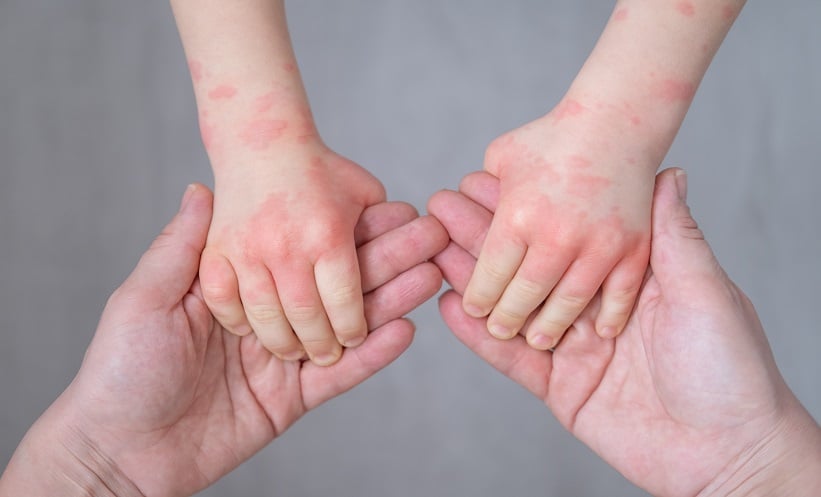NEW research, presented at the 2024 American Academy of Allergy, Asthma & Immunology Annual Meeting, suggests that early skin microbiome and metabolome may be predictive of atopic dermatitis in infants aged 6–18 months.
Atopic dermatitis (AD) is a common type of eczema, characterised by dryness and itchiness of the skin. Elizabeth Tham, Department of Paediatrics, Yong Loo Lin School of Medicine, National University of Singapore, and colleagues, conducted a study to identify potential biomarkers for this condition from the microbiome and metabolome of patients. Data was collected from a substudy within the Singapore Preconception Study of long-term maternal and child outcomes (S-PRESTO) mother–offspring cohort (n=120).
The researchers performed metagenomic sequencing, in addition to profiling of antimicrobial peptides and natural moisturising factors from skin tapes collected from infants at day 7, 3, 6, and 18 months of life. The children were subsequently assessed for symptoms of AD at age 6 and 18 months, with incidence found to be 30.8% and 20.8%, respectively.
For infants where AD was diagnosed within the first 6 months, the microbiome was found to be enriched in Pseudomonas stutzeri, with reduction in Staphylococcus and Corynebacterium species. These bacteria were linked to lower natural moisturising factors (pyrrolidone carboxylic acid, urocanic acid-cis) and higher antimicrobial peptides (α and β-defensin) levels. Notably, the skin microbiota signature was distinct between different stages of AD onset in patients. These findings suggest that early detection, and thus prevention, of atopic dermatitis can be done using skin biomarkers.






